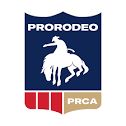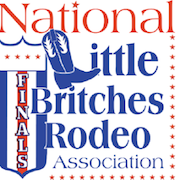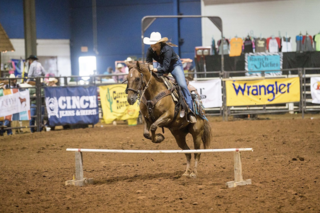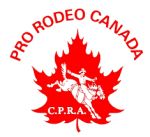Modern event

The National Little Britches Rodeo has both a Little Wrangler (coed ages 5–8) Flag Racing competition [2] and a Junior Boy (ages 9–13) Flag Racing competition. [3]
Flag Racing is a youth rodeo and O-Mok-See event for boys and girls in the US in which a horse and rider attempt to complete a pattern around preset barrels in the fastest time. The contest must deposit a flag in one bucket and remove a flag from another bucket. [1]

The National Little Britches Rodeo has both a Little Wrangler (coed ages 5–8) Flag Racing competition [2] and a Junior Boy (ages 9–13) Flag Racing competition. [3]

The rider is given a flag before the start of the race. The contestant must race toward the first barrel and place the flag in the bucket. Then the contestant must race to the second barrel and remove a flag from the second bucket. Finally, the rider must race back to the finish line.
The contestant will be disqualified for any of the following: [4]

Equestrianism, commonly known as horse riding or horseback riding, includes the disciplines of riding, driving, and vaulting. This broad description includes the use of horses for practical working purposes, transportation, recreational activities, artistic or cultural exercises, and competitive sport.

Rodeo is a competitive equestrian sport that arose out of the working practices of cattle herding in Spain and Mexico, expanding throughout the Americas and to other nations. It was originally based on the skills required of the working vaqueros and later, cowboys, in what today is the western United States, western Canada, and northern Mexico. Today, it is a sporting event that involves horses and other livestock, designed to test the skill and speed of the cowboys and cowgirls. American-style professional rodeos generally comprise the following events: tie-down roping, team roping, steer wrestling, Steer roping, saddle bronc riding, bareback bronc riding, bull riding and barrel racing. The events are divided into two basic categories: the rough stock events and the timed events. Depending on sanctioning organization and region, other events such as breakaway roping, goat tying, and pole bending may also be a part of some rodeos. The "world's first public cowboy contest" was held on July 4, 1883, in Pecos, Texas, between cattle driver Trav Windham and roper Morg Livingston.

Barrel racing is a rodeo event in which a horse and rider attempt to run a cloverleaf pattern around preset barrels in the fastest time. In collegiate and professional ranks, it is usually a women's event, though both sexes compete at amateur and youth levels. It requires a combination of the horse's athletic ability and the horsemanship skills of a rider in order to safely and successfully maneuver the horse around three barrels placed in a triangle pattern within a large arena.

Pole bending is a rodeo timed event that features a horse and one mounted rider, running a weaving or serpentine path around six poles arranged in a line. This event is usually seen in high school rodeos and 4-H events as well as American Quarter Horse Association, Paint, and Appaloosa sanctioned shows as well as at many gymkhana or O-Mok-See events.

Breakaway roping is a variation of calf roping where a calf is roped, but not thrown and tied. It is a rodeo event that features a calf and one mounted rider. The calves are moved one at a time through narrow runs leading to a chute with spring-loaded doors. The horse and rider wait in a box next to the chute that has a spring-loaded rope, known as the barrier, stretched in front. A light rope is fastened from the chute to the calf's neck, releasing once the calf is well away from the chute and releasing the barrier, which is used to ensure that the calf gets a head start. Once the barrier has released, the horse runs out of the box while the roper attempts to throw a lasso around the neck of the calf.

Rodeos have long been a popular competitor and spectator sport in Australia, but were not run on an organised basis until the 1880s.

The Women's Professional Rodeo Association (WPRA) is one of the largest rodeo sanctioning bodies in the world and is open exclusively to women eighteen years of age and older. Headquartered in Colorado Springs, Colorado, the Association currently has over 3,000 members from all over the contiguous United States, Canada, and Australia.
The National Finals Rodeo (NFR) is the premier rodeo event by the Professional Rodeo Cowboys Association (PRCA). The NFR showcases the talents of the PRCA's top 15 money winners in the season for each event.

The Professional Rodeo Cowboys Association (PRCA) is the largest rodeo organization in the world. It sanctions events in the United States, Canada, and Mexico, with members from said countries, as well as others. Its championship event is the National Finals Rodeo (NFR). The PRCA is headquartered in Colorado Springs, Colorado, United States.

Goat tying is a rodeo event in which the participant rides to a tethered goat, dismounts, catches, throws, and ties any three of its legs together. The goat must stay tied for six seconds after the contestant has backed away from the animal. If the goat becomes untied before six seconds have passed, the rider receives no score. A participant may be disqualified for undue roughness while handling the goat, touching the goat after the tie, or after signaling completion of the tie, or the contestant's horse coming in contact with the goat or tether while the contestant has control of the horse.

Gymkhana is an equestrian event consisting of speed pattern racing and timed games for riders on horses. These events often emphasize children's participation and may be organized by a recognized Pony Club or a 4-H club. In parts of the western United States, this type of competition is usually called an "O-Mok-See" competition, a term derived from a Native American phrase said to mean "games on horseback". Very small events with little or no prize money, designed for beginners or riders at a local level, are sometimes called playdays. "Gymkhana" is the word used in most of the rest of the English-speaking world, including the United Kingdom and both the East Coast and the West Coast of the United States.

Gills Bay Boy, nicknamed "Scamper", was a ProRodeo Hall of Fame timed-event horse notable for his success in barrel racing. His owner, Charmayne James, rode Scamper from 1984 to 1993 in the National Finals Rodeo (NFR). They won the Women's Professional Rodeo Association (WPRA) World Championship consecutively from 1984 through 1993. They won the NFR in 1984, 1986–87, 1989–90, and 1993. He is also the recipient of the 1992 American Quarter Horse Association Silver Spur Award. Both Scamper and James won many other championships, awards, and honors. After being retired from competition after last competing in 1993, he was cloned six years later. The clone, nicknamed "Clayton", has been kept a stallion and stands at stud. Scamper died on July 4, 2012, at the age of 35.

The National Little Britches Rodeo (NLBRA) is one of the oldest youth based rodeo organizations. It was founded in 1952, and sanctions rodeos in over 33 states. NLBRA allows children ages 5 to 18 to compete in a variety of different rodeo events. It’s championship event is the National Little Britches Finals Rodeo. The NLBRA headquarters is based in Colorado Springs, Colorado, United States. The NLBRA was founded in Littleton, Colorado. The Finals were held in Pueblo, Colorado, but moved to the Lazy E in Oklahoma in 2016.

Little Britches Rodeo is a non-fiction television series produced by Hodge Media Group for RFD-TV. It portrays the real life events during National Little Britches Rodeo Association Finals. This western lifestyle documents the lives of rodeo contestants and rodeo competition from the Finals. In addition, it features interviews with PRCA World Champions, contestants, parents, rodeo personal, and some of the industry leaders in agriculture, horse industry, and rodeo.

Dally Ribbon Roping, also known as ribbon roping, is a team rodeo event that features a steer and one mounted riders and one contestant on foot. It is a timed event. The roper starts in the box and the runner must start from a designated spot determined by the field judge. Some rules allow a runner to start anywhere in the arena.

Trail Course is a rodeo event in which a horse and rider attempt to complete a series of obstacles in the fastest time. It combines the horse's athletic ability and the horsemanship skills of a rider in order to safely and successfully maneuver a horse through a series of five obstacles. The rider must remain mounted the entire time. It is similar to Trail competition at horse shows, but with emphasis on speed rather than style.

The Canadian Professional Rodeo Association (CPRA) is the governing body of professional rodeo in Canada. Its championship event is the Canadian Finals Rodeo (CFR) held every November.
Mary Burger is an American professional rodeo cowgirl who specializes in barrel racing. She has won two Women’s Professional Rodeo Association (WPRA) barrel racing world championships in 2006 and 2016. Burger was 68 years old when she won the championship in 2016, setting a new record for oldest professional rodeo world champion in any rodeo event, male or female. She broke the existing record set by Ike Rude of 59 years old in steer roping set back in 1953. She also broke the record set by Mary Walker in 2012 at 53 years old. Also In 2016, she became the third WPRA barrel racer to wear the No. 1 back number at the National Finals Rodeo (NFR). She set a new record for season earnings, and she set a new record by becoming the oldest WPRA qualifier to the NFR at 68 years old. Her horses, Mo and Fred, whom she used to win her titles with, she trained in barrel racing herself. In 2017, she was inducted into the National Cowgirl Museum and Hall of Fame.

Wanda Harper Bush was an American professional rodeo cowgirl. She competed in the Girl's Rodeo Association (GRA), now known as the Women's Professional Rodeo Association (WPRA), and won two barrel racing world championships, in 1952 and 1953. She was inducted into the National Cowgirl Museum and Hall of Fame in 1978 and the ProRodeo Hall of Fame in 2017. The August 2017 induction ceremony was ProRodeo's 38th annual event, and marked the first time in the event's history that the class of inductees included barrel racers from the Women's Professional Rodeo Association (WPRA).
Lindsay Sears is a Canadian professional rodeo cowgirl who specializes in barrel racing. She is a two-time Women’s Professional Rodeo Association (WPRA) Barrel Racing World Champion. In December 2008 and 2011, she won the championship at the National Finals Rodeo (NFR) in Las Vegas, Nevada.